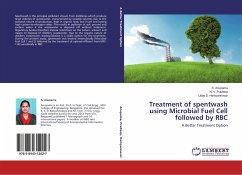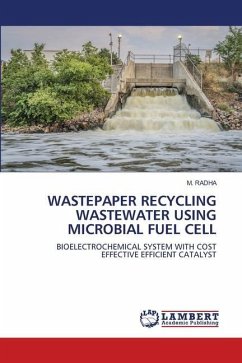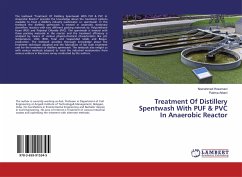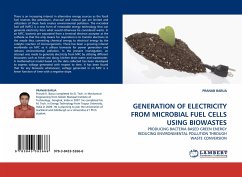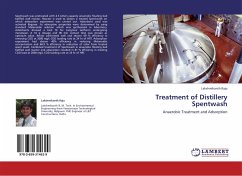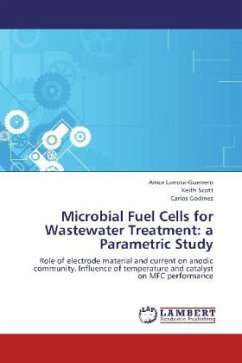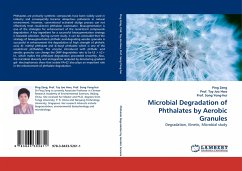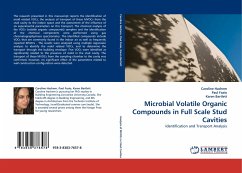Spentwash is the principal pollutant stream from distilleries which produce large volumes of wastewater, characterised by variable volumes due to the seasonal nature of production, high in organic load, low in pH and having high carbon-to-nitrogen ratios. This results in pollution of soil, ground and surface water if the wastewater is disposed off without treatment. Regulatory bodies therefore impose restrictions on the nature, amount and means of disposal of distillery wastewater. Due to the organic nature of distillery wastewater, biodegradation is a viable option for the treatment. During the present study, spentwash was treated anaerobically (Microbial Fuel Cell 1 and 2) followed by the treatment of optimal effluent from MFC-1 &2 aerobically in RBC.
Bitte wählen Sie Ihr Anliegen aus.
Rechnungen
Retourenschein anfordern
Bestellstatus
Storno

